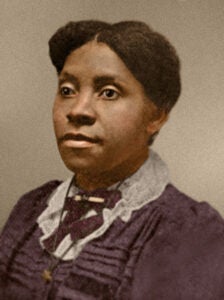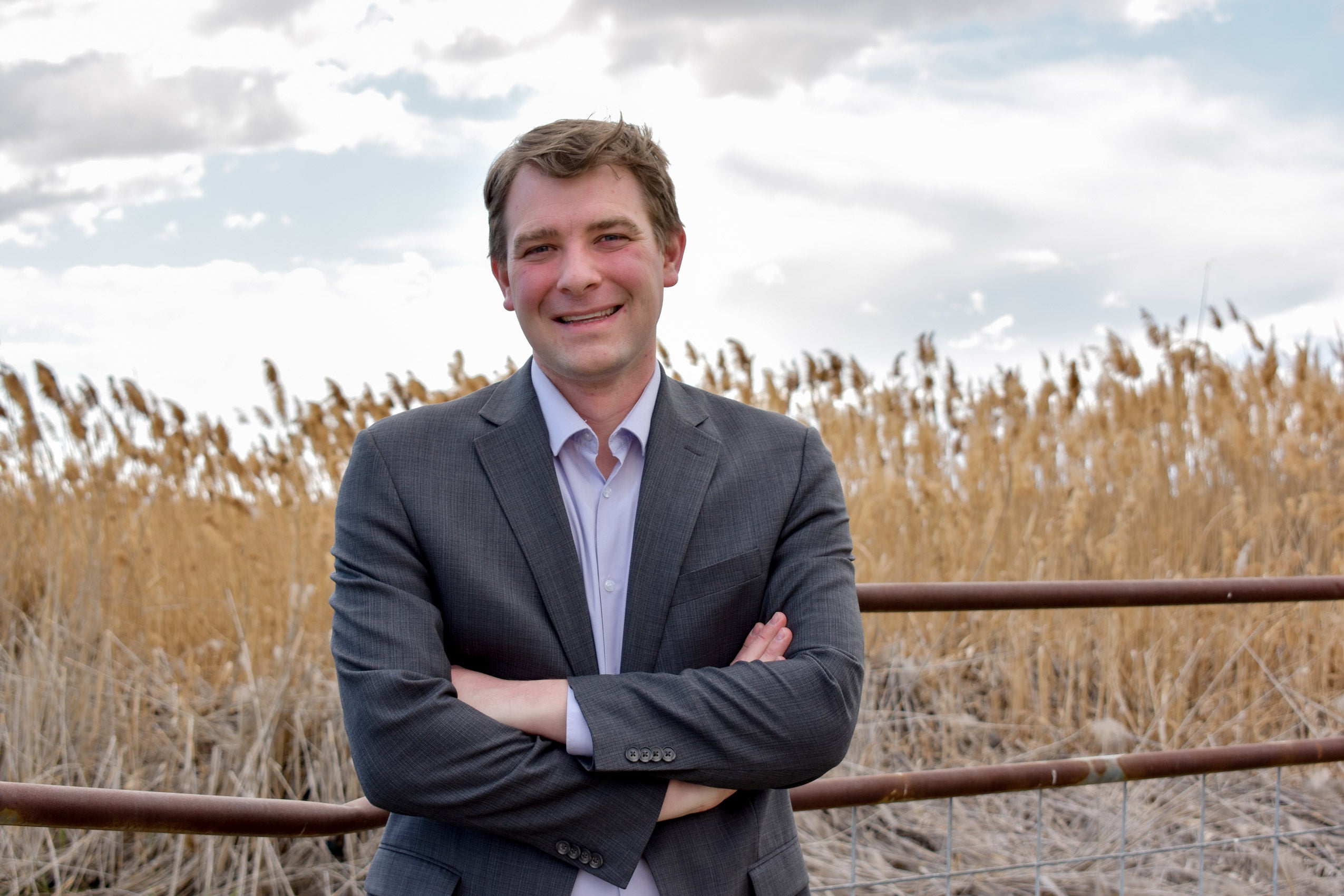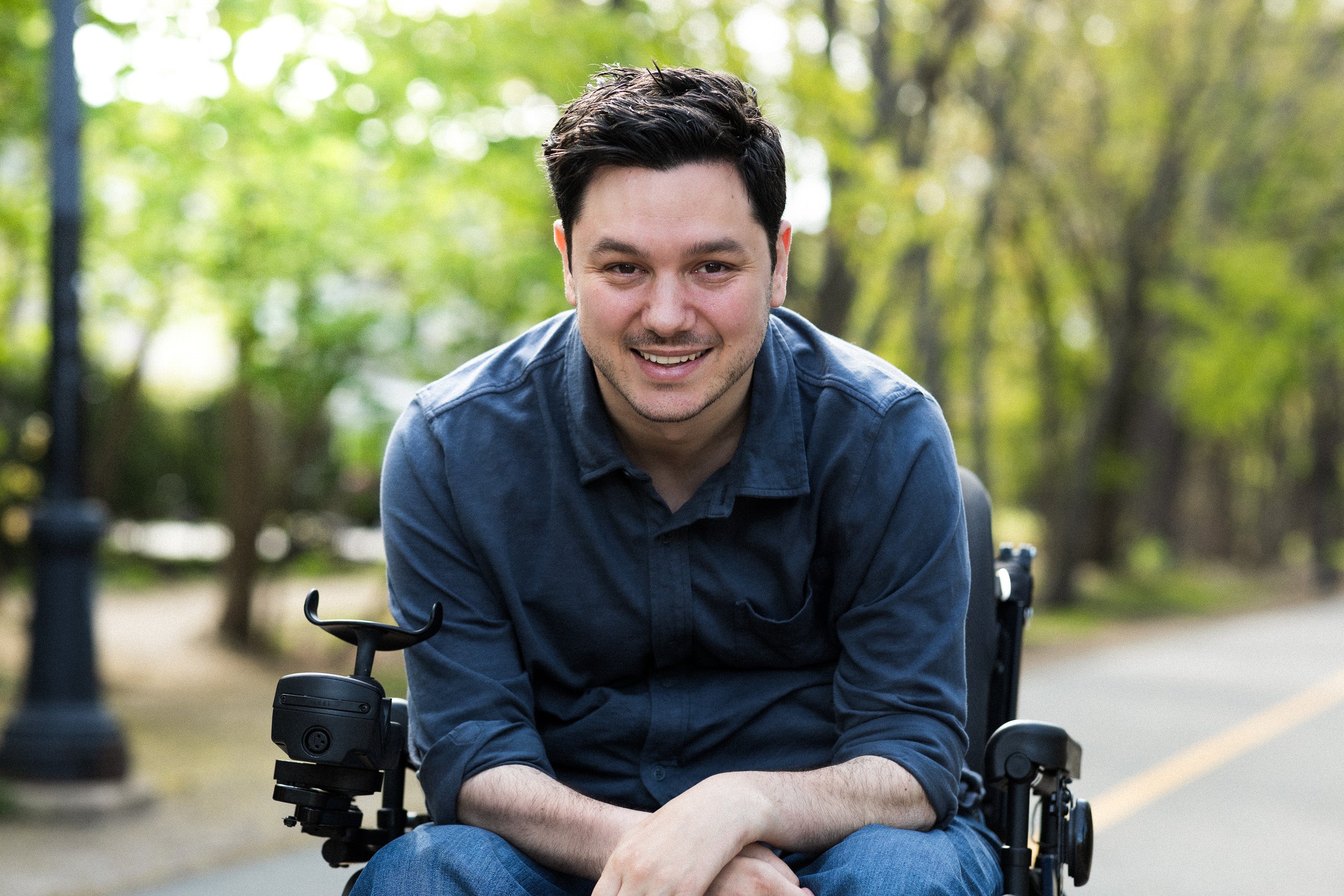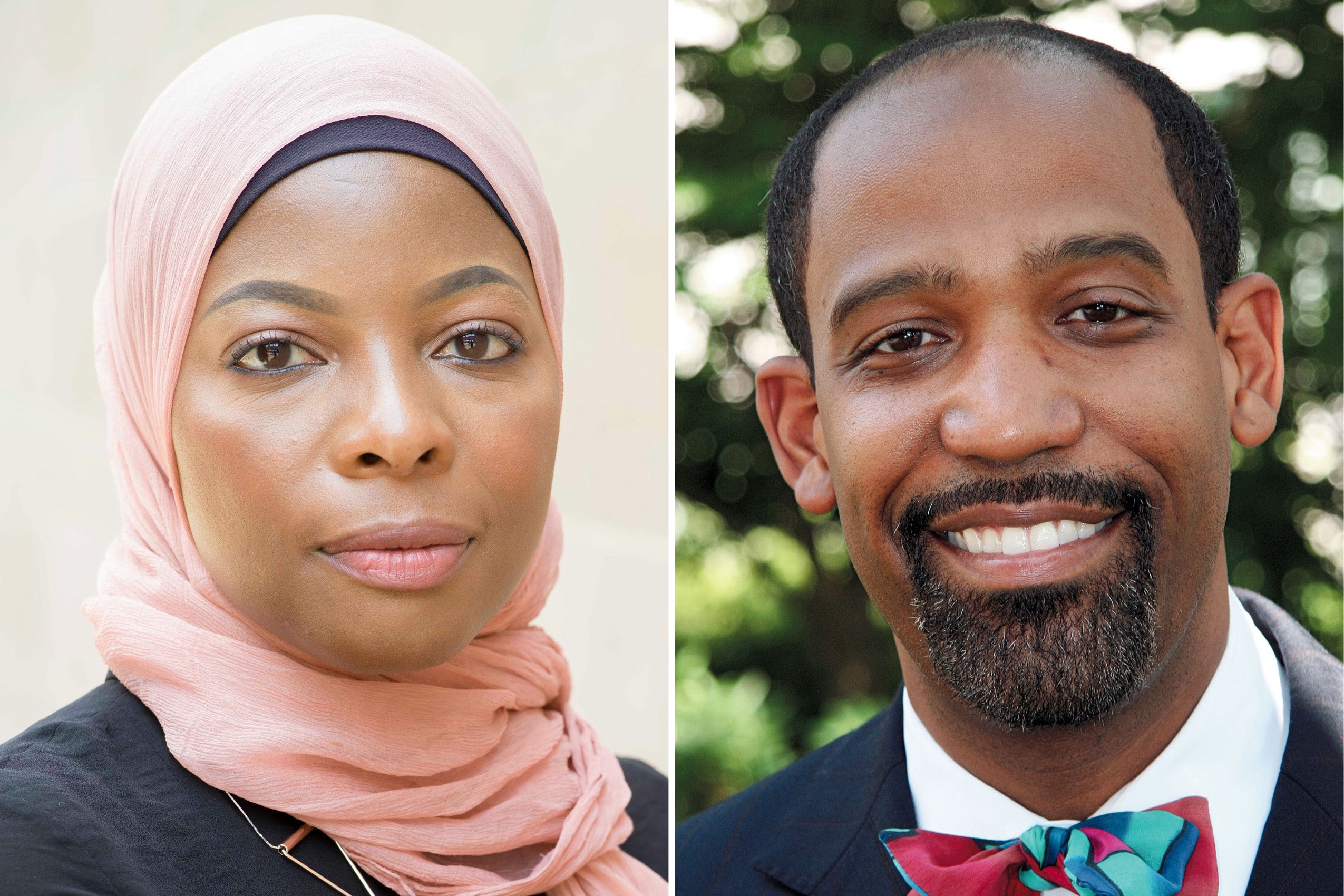People
Ronald Sullivan
-
Musk’s celebrity lawyer now plays key role in Twitter overhaul
November 7, 2022
A year ago, attorney Alex Spiro helped rapper Jay-Z win a lawsuit over perfume royalties. This week, he was part of a team that fired…
-
Justice for the ‘foremother of the reparations movement’
September 21, 2022
Advocates at Harvard Law School and Harvard Kennedy School lead an effort to obtain a presidential posthumous pardon for Callie House, a formerly enslaved woman and early civil rights hero.
-
Obama tells Harvard team basketball was about more than him
September 12, 2022
The Washington Post – Former President Barack Obama told the Harvard men’s basketball team on Friday that the sport taught him “it wasn’t just about…
-
A federal judge’s extraordinary decision on Monday to interject in the criminal investigation into former President Donald J. Trump’s hoarding of sensitive government documents at…
-
International coalition files United Nations appeal over reports of racism at border of Ukraine
March 3, 2022
An international coalition of activists and human rights attorneys on Wednesday announced they filed an appeal to the United Nations on behalf of African refugees facing racial discrimination in Ukraine and Poland. The filing follows numerous reports from Black refugees who said they faced segregation, racism and abuse as they tried to flee for safety from war-torn Ukraine to Poland. ... Ronald Sullivan, of the Criminal Justice Institute at Harvard Law School, called it "offensive" and said the media is comparing pain and suffering of different communities. "It is grotesquely ahistorical as well. Europe certainly cannot claim that it has been immune from the pillages of war," Sullivan said Wednesday. "It cannot stand as it's somehow superior in that regard to the Middle East and parts of Africa. So, they're [the media] not only getting the history wrong, but they're perpetrating a very ugly form of racial stereotyping."
-
In a flawed system, a Black prosecutor wonders if she’s pursuing justice or being complicit
February 4, 2022
An op-ed by Ronald S. Sullivan Jr.: When Laura Coates was a federal prosecutor, she learned that the victim in a car theft case she was prosecuting had an outstanding immigration warrant. He had illegally crossed the border at 16, but in the 20 years since then had worked, started a family and lived a law-abiding life. Coates was instructed by her superiors to have the witness come in as planned for the trial, but, instead of testifying, he would be arrested by U.S. Immigration and Customs Enforcement.
-
‘So few people have faith’: What do verdicts in Kenosha, Charlottesville and Brunswick say about America’s criminal justice system?
December 1, 2021
What do the results of these three different cases say about the American criminal justice system and the country's so-called “racial reckoning”? Ron Sullivan, Harvard Law professor and director of the Criminal Justice Institute at Harvard and Renée Graham, Boston Globe columnist and associate editor, joined Jim Braude on Greater Boston to discuss.
-
Harvard Law Professor Ron Sullivan On The Kyle Rittenhouse Trial
November 23, 2021
Friday afternoon, the jury in the trial of Kyle Rittenhouse came back to deliver the final verdict, not guilty. WORT Assistant News Director Nate Wegehaupt is joined by Harvard Law Professor Ron Sullivan to discuss the verdict, and the parallels to other cases here in Wisconsin.
-
An op-ed by Ronald S. Sullivan, Jesse Climenko Clinical Professor of Law: In a two-week trial that reignited debate over self-defense laws across the nation, a Wisconsin jury acquitted Kyle Rittenhouse for shooting three people, two fatally, during a racial justice protest in Kenosha. ... As a professor of criminal law, I teach my students that the law of self-defense in America proceeds from an important concept: Human life is sacred, and the law will justify the taking of human life only in narrowly defined circumstances. The law of self-defense holds that a person who is not the aggressor is justified in using deadly force against an adversary when he reasonably believes that he is in imminent danger of death or serious bodily injury. This is the standard that every state uses to define self-defense.
-
Faith and fellowship
May 18, 2021
Growing up with a father in the Air Force, Mark Gillespie ’21 moved around a lot as a child. But far from this being a negative, Gillespie says it gave him the sense that life’s possibilities were endless.
-
A brilliant second act
May 11, 2021
Zachary Weinstein ’21 didn’t always want to be a lawyer. In fact, for most of his life, he was more likely to be found in front of a camera than in front of a judge.
-
Fact check: Missing context in claim questioning whether Derek Chauvin received fair trial
April 22, 2021
The claim: Derek Chauvin did not get a fair trial for the killing of George Floyd. After weeks of jury selection, arguments, testimony and 10 hours of jury deliberation, former Minneapolis police Officer Derek Chauvin was convicted of murder in the killing of George Floyd...In some cases, Chauvin’s defense attorneys and prosecutors didn’t need a reason to strike a juror from the pool, as long as it was not based on race. Typically, defense attorneys in similar cases get five “peremptory” strikes, while prosecutors receive three, according to the Associated Press. In Chauvin’s case, defense attorneys were given 15 strikes compared with nine for prosecutors. “It shows the judge bent over backwards to give the defense more opportunities to exclude potentially bad jurors even if the juror didn’t meet the technical criteria for a challenge,” said Ron Sullivan, a professor at Harvard Law...All three experts interviewed by USA TODAY agreed that Chauvin received a fair trial. Harvard Law's Sullivan said an appellate court would have to determine if any of Chauvin’s challenges were “outcome determinative,” meaning that if those scenarios were different during the trial, it would have led to a different conclusion. While the defense might be able to argue, for example, that the judge gave prosecutors too much latitude in allowing lay witnesses to testify as experts, Sullivan said, it’s unlikely to succeed. “I think it was a clean trial,” said Sullivan.
-
After a jury found Derek Chauvin guilty on three charges of murder and manslaughter, Attorney General Merrick Garland pledged Wednesday to investigate the entire Minneapolis, Minnesota, police department. Meanwhile, an Ohio officer’s fatal shooting of a 16-year-old-girl Black girl on Tuesday spurred more nationwide debate over policing. Suffolk County District Attorney Rachael Rollins and Harvard Law School professor Ron Sullivan joined Jim Braude to discuss.
-
HLS professors win case for former Buffalo police officer fired for intervening in a chokehold
April 20, 2021
In a precedent-setting case, Harvard Law School professors secure reinstatement for a Buffalo police officer fired for intervening in a chokehold.
-
Litigators of the Week: This Kirkland/Harvard Law Team Vindicated a Fired Cop Who Intervened When a Colleague Used Excessive Force
April 19, 2021
In May 2008, the Buffalo Police Department fired Cariol Horne just months shy of her pension for 20 years of service vesting after she intervened when a fellow officer applied a chokehold to an unarmed Black man. This week a litigation team led by lawyers from Kirkland + Ellis and Harvard Law School won a ruling from a state court judge in New York awarding Horne back pay and benefits that she had previously been denied in another legal challenge to her firing more than a decade ago...Ronald Sullivan: “At stake was not only Cariol’s pension and her ability to support herself, but also the message being sent to other officers. She fulfilled her duty to protect and serve, but her first trip to court in 2010, where the court confirmed her termination, created a chilling effect on an officer’s duty to intervene. Despite what the official policy was, a court decision that terminated a fellow officer and denied her a pension did not encourage officers to follow Cariol’s lead—even though her behavior is what the nation was calling for and requiring.” ... Intisar Rabb: “Cariol presented a model for what we the people expect police officers to do when another officer is using excessive force against an unarmed civilian: She intervened to save a life and was punished for it. We thought it imperative that she get not only her pension, but that our laws are correct that led to the injustice of her losing it.”
-
State Ethics Commission clears Suffolk District Attorney Rachael Rollins in alleged road rage incident
March 30, 2021
The state Ethics Commission has dropped its investigation into the alleged Christmas Eve road rage incident involving Suffolk District Attorney Rachael Rollins, telling the woman who filed the complaint that after “a careful review” the office has determined that “the matter doesn’t warrant further action by this office.” ... Ronald Sullivan, a private lawyer who represented Rollins in the investigations, said in a statement that the commission’s finding fully vindicated Rollins: “This few-second traffic encounter has been thoroughly reviewed and not a single criminal, civil rights, or ethical violation occurred. The District Attorney is not surprised by these outcomes, and sincerely hopes we can all return to the far more pressing matters facing the Commonwealth.”
-
A Georgetown professor trades her classroom for a police beat
February 17, 2021
A book review by Ronald Sullivan: A decade ago, Sudhir Venkatesh, a Columbia University professor of sociology, made quite a splash with his book “Gang Leader for a Day: A Rogue Sociologist Takes to the Streets.” His research consisted of shadowing a Chicago gang for 10 years, and it yielded valuable insights on the inner workings of the drug trade. Notwithstanding his book’s provocative title, however, Venkatesh never became a gang leader; rather, he closely observed gang life and culture by gaining unprecedented access. Georgetown law professor Rosa Brooks took this a step further, as recounted in her fascinating book “Tangled Up in Blue: Policing the American City.” Brooks did not simply observe policing in America. This highly educated, tenured professor became the police...The two stories work together to show that race and class conspire to create conditions that leave poor, Black citizens with mostly bad choices in order to survive. These choices include committing crimes. But these crimes have victims, who are mostly poor and Black. The victims of crime require and request more policing. But more policing results in the negative interactions between the police and Black citizens that have sparked so many recent protests. This is what Harvard scholar Randall Kennedy calls a “negative good” in his groundbreaking work, “Race, Crime, and the Law.” It is a “good” for police to respond to neighborhoods with heightened crime, but a “negative” when over-policing leads to harms to the very community law enforcement purports to protect. “Tangled Up in Blue” puts this tension on full display.
-
Flint water charges escalate debate over officials’ failures
January 19, 2021
When a former Michigan public health director was charged with involuntary manslaughter in the Flint water crisis, the man who previously held the job says a chilling thought crossed his mind: It could have been me. "I spent 14 years in that chair," said Jim Haveman, who served under two Republican governors — including Rick Snyder, another target of indictments released Thursday...He contends Snyder, former health chief Nick Lyon and seven others charged with various counts in one of the worst human-made environmental disasters in U.S. history are victims of Monday-morning quarterbacking that makes criminals of government officials guilty of nothing worse than honest mistakes. Prosecutors, however, say this is no ordinary matter of well-meant decisions that backfired...Snyder is the first governor in Michigan's 184-year history charged with crimes involving job performance. Ron Sullivan, a Harvard Law School professor, said he knew of no such cases in other states. Governors have been accused of taking bribes, violating campaign finance laws and personal misconduct. Sullivan helped prosecute a former Missouri governor on an invasion-of-privacy charge involving a sex scandal. But the Michigan matter, he said, is "odd" and he thinks the bar for a conviction will be high...Sullivan, the Harvard professor, agreed the case probably wouldn't produce many imitators. Prosecuting a governor or other high-ranking officials for what amounts to poor job performance — even if intentional — is an "extraordinarily aggressive" approach, he said.
-
Cariol Holloman-Horne's legal team made the first step Wednesday toward a new lawsuit over her firing 12 years ago from the Buffalo Police Department. Her attorneys filed in State Supreme Court in Buffalo paperwork seeking an index number assigned to her old case. It is a procedural motion, but it signals the start of a new legal fight to have her firing overturned and to get a full police pension. Horne was fired in 2008 following an arbitration hearing. She was accused of attacking a fellow officer as he was trying to arrest a man during a domestic dispute on Nov. 1, 2006. Horne said then and has maintained over the years that she was trying to stop the officer from choking the man. At the time, she had 19 years on the job, which meant she was one year shy of the 20 years required to receive a full police pension upon retirement. That meant she would have to wait until she was 55 to retire and receive a partial pension from the state. This is not Horne's first attempt to have her case overturned. Several months after she was fired, she sued to be reinstated, but then-State Supreme Court Justice Joseph Makowski ruled against her on several procedural matters. Horne's case took on renewed interest after the officer she had fought, Greg Kwiatkowski, pleaded guilty to a misdemeanor charge in an unrelated federal police brutality case. Kwiatkowski, who testified against two other officers who were acquitted in that case, waws sentenced to four months in prison. The uproar earlier this year over the video-recorded death of George Floyd, who suffocated under the knee of a Minneapolis police officer while three others officers stood nearby, also drew new attention to Horne's firing. Horne is represented by a legal team led by Ronald Sullivan and Intisar Rabb of Harvard Law School. Sullivan and his team represented the family of Michael Brown, a Black teenager whose shooting death by a white police officer in Ferguson, Mo., sparked protests there in 2014. The attorneys were not available for comment Wednesday.
-
Fired officer’s long quest for vindication: ‘Cariol did what those officers didn’t do’
September 8, 2020
For 14 years, Cariol Holloman-Horne has held firm that she did the right thing when she tried to stop a fellow Buffalo cop who she says was choking a man he was trying to arrest. Horne lost her job and also her full police pension. She's worked odd jobs, mostly recently as a truck driver. At times, she has lived out of her car. She tried numerous times and through numerous avenues to try to get her pension and also pass laws to require police to intervene when another one is going too far...The cellphone video of George Floyd dying under the knee of a Minneapolis police officer set off a firestorm of outrage, not just at Derek Chauvin but also the three other police officers who are seen standing by and doing nothing to stop Chauvin. Suddenly, Horne’s story has new resonance...Horne recently gained powerful new allies: She is represented by a legal team that includes Ronald Sullivan and Intisar Rabb of Harvard Law School. Sullivan and his team represented the family of Michael Brown, a Black teenager whose shooting death by a white police officer in Ferguson, Mo., sparked unrest there in 2014. “Honored to now represent @CariolHorne – former Buffalo police officer terminated after she intervened when a fellow officer employed a chokehold against an unarmed black man,” he tweeted July 10. The Common Council appears poised to enact at least part of Horne's proposal by making the duty to intervene a law and not just a police department policy, as it is now.
-
The St. Louis couple who emerged from their mansion in a gated community and aimed weapons at protesters marching past them last month were each charged Monday with one felony count of unlawful use of a weapon. Lawyers Mark McCloskey, 61, and Patricia McCloskey, 63, have said they were merely defending their home on a private street in an upscale neighborhood from a crowd that was marching to Mayor Lyda Krewson’s house to protest racial injustice. Video and photographs showing Mark McCloskey wielding a rifle and Patricia McCloskey aiming a pistol at the marchers created a firestorm of controversy between those who felt the couple was legally defending their home and those who felt they were menacing peaceful protesters...The McCloskeys and their supporters have said that the “castle doctrine” in Missouri law, and elsewhere, empowers a homeowner to stand their ground and use deadly force when threatened. But Harvard Law School Professor Ronald S. Sullivan Jr. said Friday that “the law is crystal clear in Missouri, that a reasonableness argument is necessary for a defendant to take advantage of the Castle doctrine. The defendant has to be reasonably afraid of being in imminent danger.” Sullivan said that despite the McCloskeys’ claim that the entire Portland Place neighborhood was private property, and the protesters were immediately trespassing, “the castle doctrine would still be unavailable. The doctrine removes one’s duty to retreat. But they could only use deadly force if they reasonably felt they were in imminent danger. Based on the video evidence, that’s a very difficult argument to make,” because the protesters were unarmed and did not move toward the McCloskey residence, Sullivan said. “Otherwise,” Sullivan said, “the castle doctrine would swallow up all of the existing law and we’d have a ‘Wild Wild West’ out there.”



